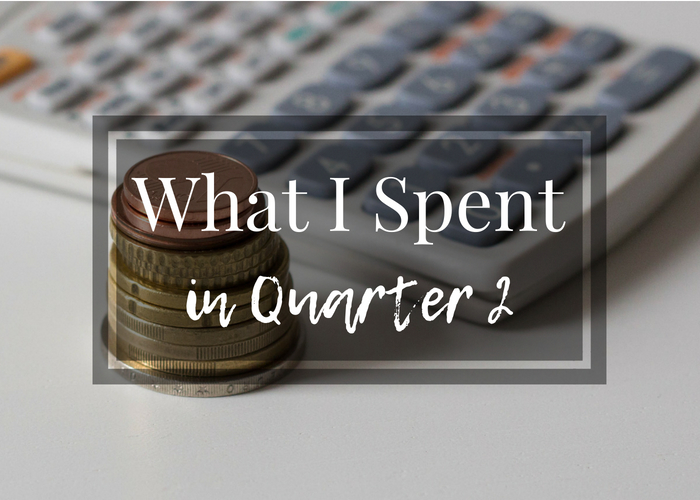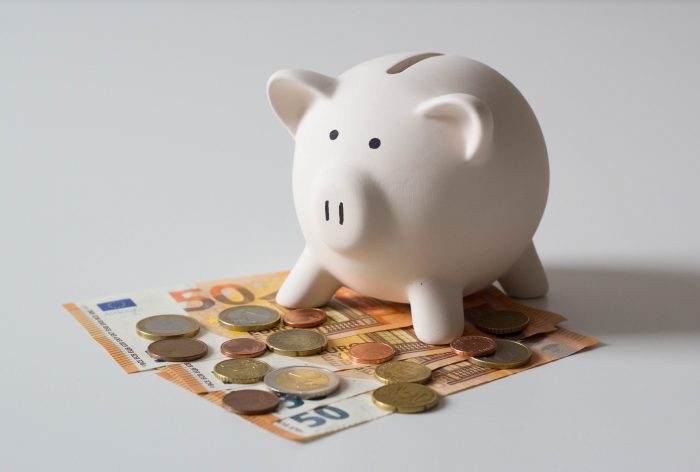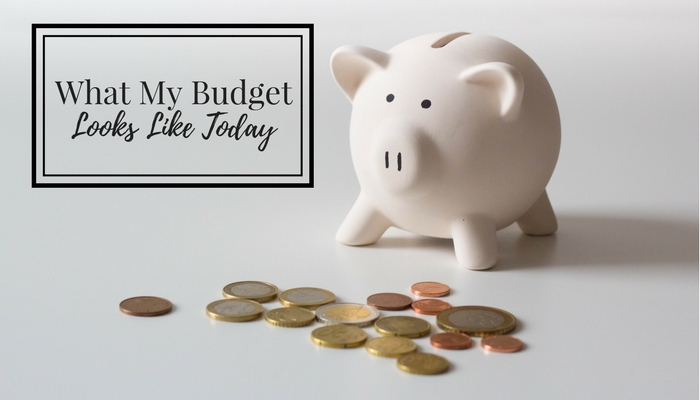Happy Friday! Typically, I save Fridays for writing fun and light-hearted posts, but this time around, you’re getting a lengthy discussion about my spending summary for Q2. I did this in Q1 and it was interesting to look back at that post, and see what areas I’ve improved and what areas I haven’t.
I’ve broken these down by categories, from where I spent the most money to where I spent the least, and it comprises April, May, and June during which I took a seven-day cruise and had a bunch of stupid car repair stuff. I’m sharing real numbers here, which is something I can do because my budget only concerns me and me alone. As a note, I don’t use any sort of budgeting software. I use a spreadsheet I created on Google Docs because I like doing it old school. 🙂
Okay! Let’s get down to business:
Entertainment – $757
I spent way more money this quarter with my entertainment budget – $172 more to be exact. It amounts to spending about $63 a week on entertainment, which can range from pizza delivery to movie tickets to dinners with friends. Ideally, I’d love to bring this area of my budget under $450 per quarter and that’s going to take a lot of work to make happen. We’ll see if I can accomplish it in Q3!
Beauty – $546
This category comprises hair appointments, waxes, pedicures, and massages. It was a pretty pricey quarter for beauty, as I spent $200 more than I did in Q1. I had two hair appointments, a handful of pedicures, two eyebrow waxes, and one underarm wax. No massages this quarter, and I’m hoping to rectify that in Q3 because my muscles are definitely craving a massage. I really take this area of my budget seriously – I go to a pricier salon for my hair appointments and waxes, but it’s worth it for me. I also probably don’t need a monthly pedicure, but it’s less than $30, and makes me feel good to have pretty toes!
However, I would like to slash this area of my budget if I can and one way I’m going to do that is by coloring my hair at home. Typically, I get my hair colored every eight weeks and every other time I get my hair colored, I get it cut. I’d like to cut out that appointment where I’m only getting it colored, which would mean I’m only at the salon three times a year, instead of six. It would save me a lot of money!
Travel – $437
Even though Q2 is when I took my cruise, I spent a lot less this month because everything was already paid for! But I did end up spending quite a lot on the cruise, between drinks, souvenirs, bingo games, and parking fees at the port. It was all worth it, though!
Health – $219
This category comprises my gym membership, Weight Watchers membership, and all of the medicine I purchased during Q2 due to all of the sickness I dealt with. And yeah, you read that right: Weight Watchers membership. I joined back in late March when they had a great deal on a six-month membership. It’s around $38 a month and I can’t say I’m using my membership to its fullest extent – eeks. I’d like to write a post about my complicated feelings about being a Weight Watchers member because I have a lot of weird feelings about it.
But anyway, I’m hoping this category will reduce a lot in Q3 because I’m about 95% sure I’m going to cancel my gym membership soon. It’ll save me $35 a month!
Toiletries – $174
Toiletries include personal care products like shampoo, conditioner, mouthwash, body wash, etc., as well as household items, such as dish soap, garbage bags, paper towels, etc. I stop by Target twice a month for toiletries and would like to keep my spending under $50 a month, and I’m really close to doing so! I’ll always spend a little more on toiletries than some people because I buy a lot of body wash every month (I use them for my bubble baths at night and buy 4-5 bottles a month), and buy the pricier shampoo and conditioner.
The last time I did this spending summary, I included makeup with my toiletries total and this time I separated them out. I’m interested to see if I spend less in Q3 on toiletries now that I have a starting point.
Starbucks – $150
This is a pretty normal total for me, as I add $25 to my Starbucks card every two weeks (when I get paid). I go to Starbucks once a week to work on my novel and typically get a pricey coffee and breakfast sandwich when I do. I’m okay with this number!
Gifts – $122
This is double what I spent in Q1, but what can you do? Gift-giving is a priority for me. I bought birthday gifts for a couple of friends and a housewarming gift. Always happy to shower my friends with a little something for their birthdays and special events!
Clothing – $109
I covered some of this in my yearly goals post on Wednesday, but Q2 was a bit spendier than I wanted it to be in terms of clothing. I bought a polo shirt, two pairs of sandals. I also had to buy a “costume” for a friend’s 90s-themed birthday party. I was able to return most of what I bought, but a few of the items were from Amazon and man do they make it inconvenient to return things, ha. I could have gotten $25 back, but I just didn’t feel like wasting the energy to buy an envelope and ship it back. Ah, well.
Books – $65
Woohoo, I slashed this in half from Q1! I have tried to put a bit of a kibosh on my book buying, so most of the money spent on books in Q2 came from my Book of the Month subscription, which is $15 a month. I also added an extra book for $10 one month and couldn’t help myself to a new Christina Lauren book when I was at Target last month. Oops.
Makeup – $65
It’s really interesting to see how much I spend on makeup over a quarter! And, honestly, I can’t remember if this includes my $10 a month Sephora PLAY! box. (I recently added a “subscriptions” tab to my spending spreadsheet, but I think I included the beauty box in my makeup category.) If it does, then that’s not too shabby – $35 for makeup over three months. I don’t buy a ton of makeup, though. I have to replace my foundation and powder every other month, and my mascara and eyebrow pencil once a quarter. Thanks to my beauty box, I have tons of lipstick samples and eye shadow samples so I never have to buy those now.
Okay! So there we go. That’s my spending summary for Q2. Some wins, some losses. And I was able to kick the Amazon category off this list because I deleted my Prime membership finally. Woo! I’d really like to focus on that entertainment budget in Q3, and somehow keep it under $500. I feel like it’s just something I have to be super conscious about, and knowing that I don’t have to say “yes” to every social outing my friends invite me to. It’s okay to experience a little bit of FOMO if it means I’m aligned with my goals.
I didn’t include my debts in my previous spending summary, but it’s going to have a place going forward. I’m nervous to talk about it, but deep breaths!
Debts
- Student loans: $13,039
- Credit card: $1,615
Okay, I’m writing these numbers here for accountability and I know it means I’m opening myself to receiving messages about my irresponsibility with my money. Please don’t do that. Be a kind person, okay, and realize that we’re all just trying our best and sometimes, it means we incur credit card debt. I don’t like that I have credit card debt and I beat myself up enough about it. No need to tell me that it’s irresponsible!
With that said, Q2 was not a good quarter for my debts. It was especially not a good quarter for my credit card because I had it nearly paid off. And then the cruise happened. And then a bunch of car troubles happened. Things just happened.
I know I need to get out of the cycle of using my credit card whenever something happens, and I know I can quickly pay off this debt during Q3, as I won’t have a car payment anymore and can funnel an extra $230 to my credit card. (And, you know, stop using the card!)
I’m paying the minimum balance on my student loans right now, but once I have my credit card paid off and then an emergency fund set up, I’m going to start funneling an extra payment to those loans. Maybe I’ll have them paid off by the time I’m 40? 🙂 Hopefully sooner, but I’m also not super stressed about those loans. They are “good” debt as far as I’m concerned.


